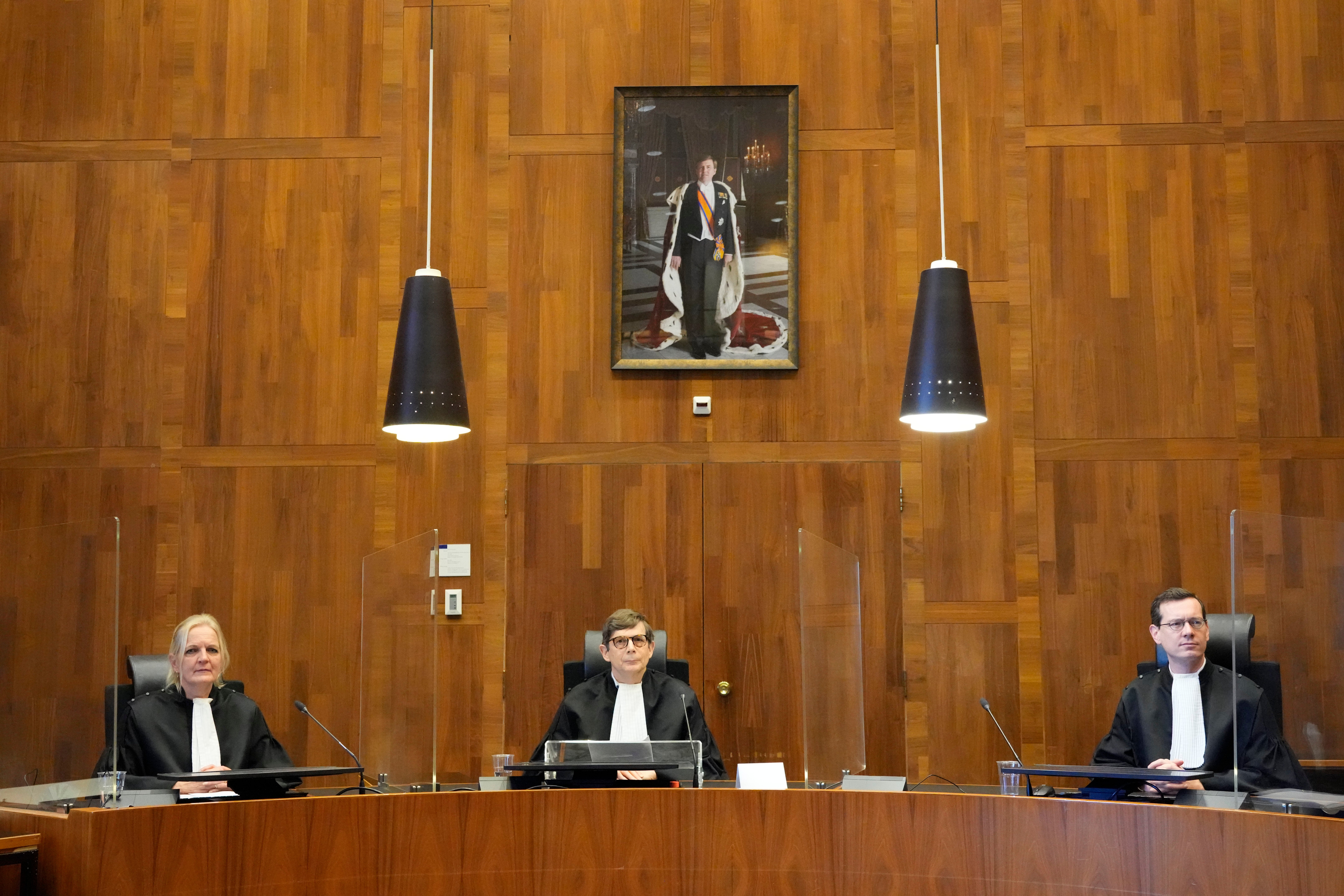Dutch court upholds Gantz immunity in Israeli airstrike case
A Dutch appeals court has upheld a lower court’s decision to throw out a civil case against Israel’s defense minister and another former senior military officer over their roles in a deadly 2014 airstrike

Your support helps us to tell the story
From reproductive rights to climate change to Big Tech, The Independent is on the ground when the story is developing. Whether it's investigating the financials of Elon Musk's pro-Trump PAC or producing our latest documentary, 'The A Word', which shines a light on the American women fighting for reproductive rights, we know how important it is to parse out the facts from the messaging.
At such a critical moment in US history, we need reporters on the ground. Your donation allows us to keep sending journalists to speak to both sides of the story.
The Independent is trusted by Americans across the entire political spectrum. And unlike many other quality news outlets, we choose not to lock Americans out of our reporting and analysis with paywalls. We believe quality journalism should be available to everyone, paid for by those who can afford it.
Your support makes all the difference.A Dutch appeals court upheld Tuesday a lower court's decision to throw out a civil case against Israel's defense minister and another former senior military officer over their roles in a deadly 2014 airstrike.
The Hague District Court ruled in January 2020 that the case against Israeli Defense Minister Benny Gantz and former air force commander Amir Eshel couldn't proceed because the men have “functional immunity from jurisdiction.”
The Hague Court of Appeal said Tuesday that the lower court was right to rule that Gantz, who was a senior military officer at the time of the airstrike, and Eshel had immunity because they were carrying out Israeli government policies.
The case was brought by Ismail Ziada, who lost six members of his family in the airstrike that lawyers for the men argued was part of an Israeli military operation during the 2014 Gaza conflict. He wanted the Dutch court to order Gantz and Eshel to pay damages.
The lower court also said that Ziada was free to sue the men in Israel. At hearings in 2019, Ziada rejected the idea that he has access to justice in Israel as “farcical as well as vicious.”
Ziada told an earlier hearing that he lost his mother, three brothers, a sister-in-law and a 12-year-old nephew in the airstrike.
Israel’s Justice Ministry told the court before the 2020 decision that an internal Israeli military investigation determined the airstrike had killed four militants hiding in the house. It said the attack was permissible under international law. Gaza’s Hamas rulers themselves have said that two militants were in the building.